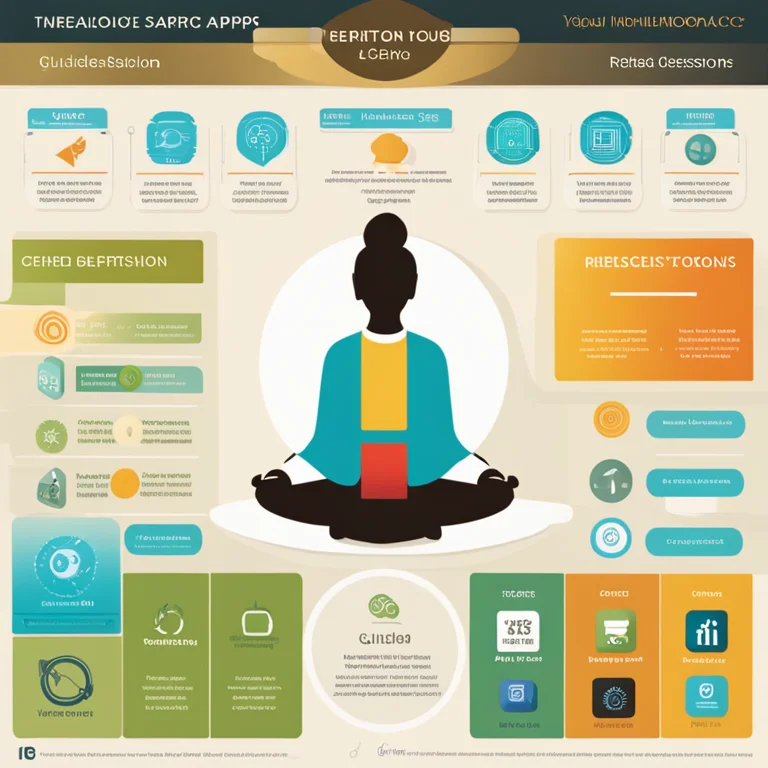
Nightly Meditation: A Gateway to Serene Slumber
Delve into the calming practice of nightly meditation to improve sleep quality and embrace tranquility.
article by Hina Kurosawa
The Benefits of Nightly Meditation
Meditation has long been praised for its ability to reduce stress, calm the mind, and improve emotional health. As our days become increasingly busy, finding peace before bed is more important than ever. Engaging in a nightly meditation practice can significantly enhance sleep quality and ensure you wake up refreshed. This ancient ritual helps in quieting the mind, preparing the body for rest, and cultivating a restorative sleep environment. Additionally, meditation has been shown to reduce insomnia and improve REM sleep cycles. Embrace this nightly habit to discover a newfound sense of nocturnal tranquility.

Creating a Meditation-Friendly Space
To begin your journey into pre-sleep meditation, it's crucial to create an environment conducive to relaxation. Make your meditation space comfortable, perhaps with pillows or a soft mat. Dim the lights or use candles to create soft lighting, and consider incorporating soothing scents like lavender. Minimizing noise pollution is essential, so choose a quiet room or use soundproofing methods. The goal is to create a sanctuary where you can detach from daily stresses and transition smoothly into restfulness without any distractions. Remember, the right setting can make all the difference in your meditation experience.

Meditation Techniques for Restful Sleep
There are myriad meditation techniques available, but some are particularly suited for promoting sleep. Mindfulness meditation involves focusing on the breath and being present, helping to silence the buzz of day-to-day thoughts. Guided imagery, where you visualize a peaceful scene or story, can lead your mind away from stressors. Body scan meditation is also excellent before bed, as it requires you to pay attention to each part of the body, encouraging full relaxation. Experiment with different techniques to find the one that best helps you transition into a peaceful sleep.

Meditation Apps and Resources in 2024
As we move further into the digital age, meditation resources have become abundantly accessible. In 2024, a wealth of apps offer guided sessions, timed meditations, and ambient sounds designed to improve sleep. Virtual reality meditation experiences are also on the rise, offering immersive environments that can take your pre-sleep ritual to the next level. Wearables that track biometrics and adjust meditation parameters for personalized relaxation are contributing to more effective sleep-oriented practices. Be sure to explore current technological aids to enhance your meditation routine.

Combining Meditation with Other Techniques
To maximize the benefits of your pre-sleep meditation, consider integrating other relaxation methods. Gentle stretching or yoga can release physical tension, making it easier to sit or lie comfortably during meditation. Journaling prior can help unload thoughts or worries onto the page, clearing your mind for a more focused meditation session. Pairing meditation with a consistent bedtime routine, including reducing screen time, can signal your body that it's time to wind down and prepare for rest.
Incorporating Meditation Into Your Lifestyle
Building a habit of pre-sleep meditation doesn't happen overnight. It's helpful to start with short sessions, perhaps 5-10 minutes to begin, and gradually increase as you grow accustomed to the practice. Consistency is key, so aim to meditate around the same time each night. While some nights might be more challenging than others, perseverance will lead to a more restful sleep pattern. Let nightly meditation become a personal ritual, a moment of solitude and reflection before surrendering to sleep's embrace.
Published: 1/9/2024
Modified: 1/9/2024
More predictions
Come back here soon to learn more about yourself and your future


Serenity Through Meditation Retreats
Embark on a transformative journey at a meditation retreat to recharge, refocus, and reconnect with your inner self.


Retreat Into Serenity: A Guide to Meditation Getaways
Discover the transformative power of meditation retreats and how they can rejuvenate your mind, body, and soul.


The Harmony of Meditation and Sleep
Discover the synergistic benefits of meditation for enhancing sleep quality and overall well-being in this insightful article.